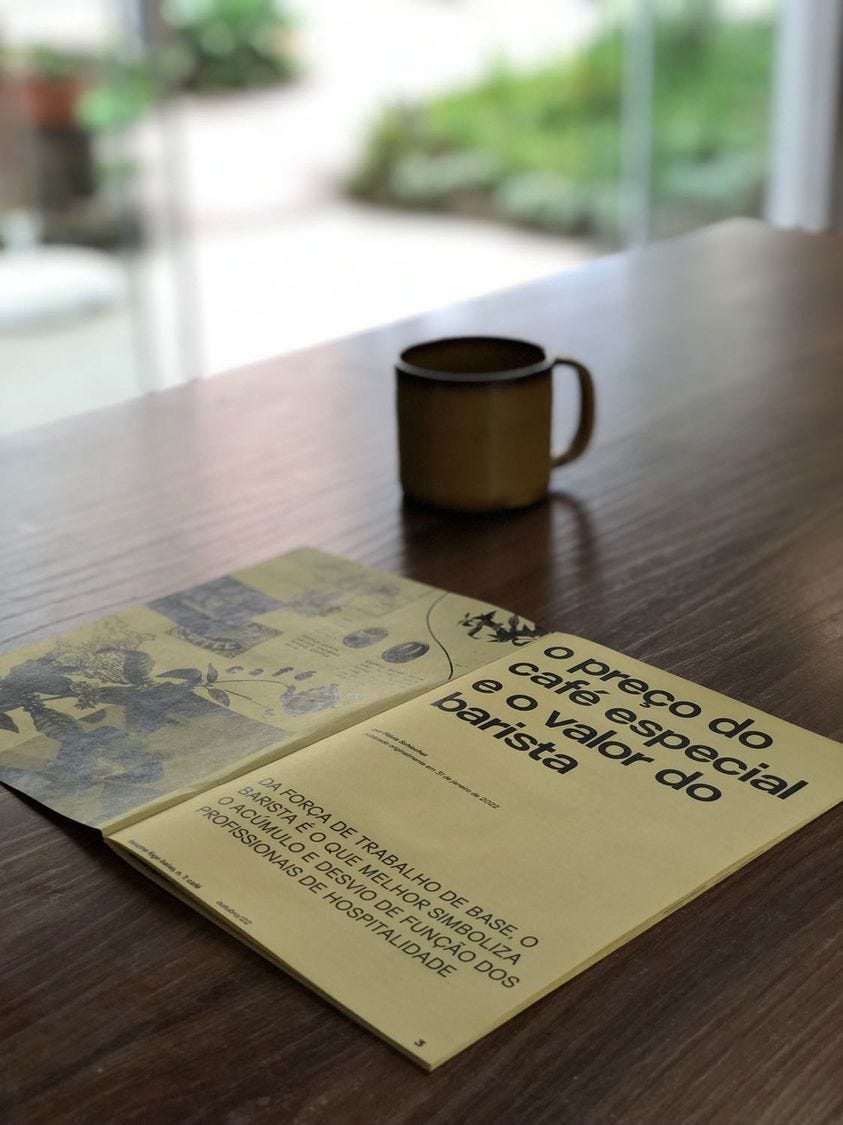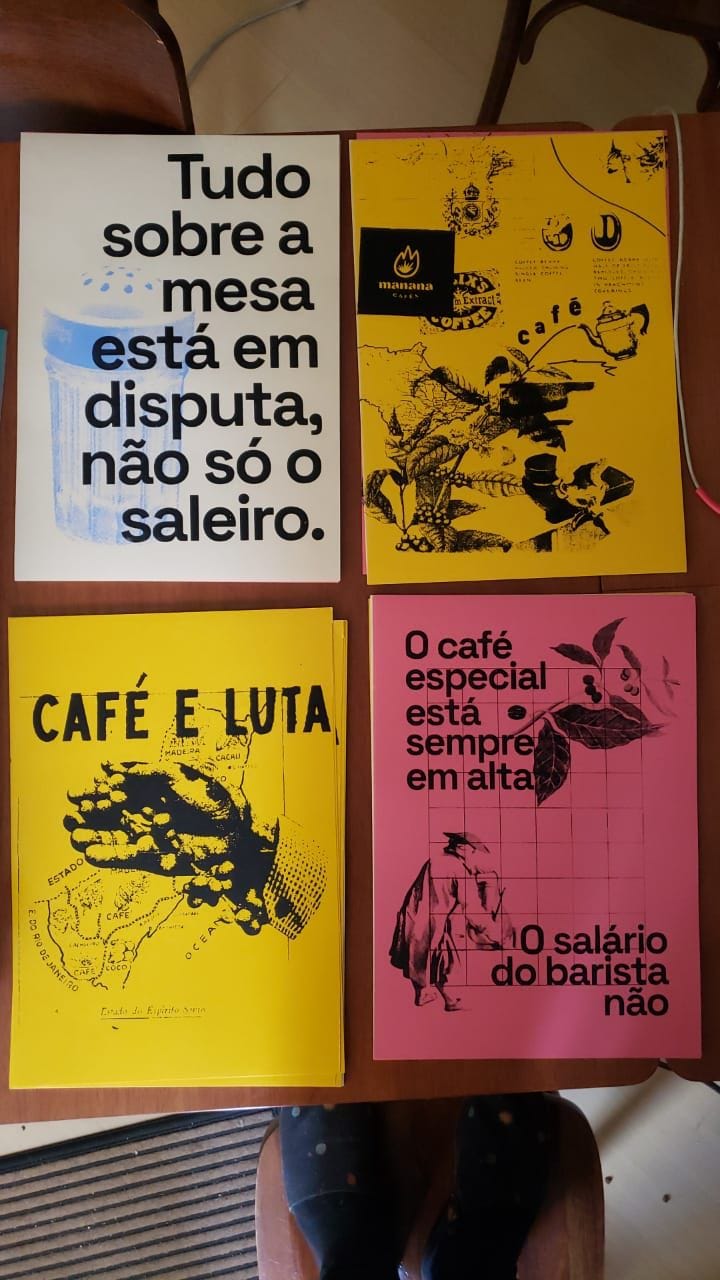There are many things I like about having a newsletter at Substack. The improvements in editorial tools are constant, and, what stands out the most about them, is how well thought out they are based on the needs of a writer. But, not an isolated writer, rather from an active community of them, a network. In other words, the best thing about Substack is not its tools by themselves, but the human connections that are generated from them (there are no algorithms that decide what people see).
I love getting in touch with food writers —or of any genre— from other parts of the world, because a very rich exchange is possible; we have a number of topics in common, and profiles and specialties that complement each other in spontaneous and organic ways. I met Flavia thanks to a remote Christmas toast for food newsletters; we had so much to talk about in that session, that we organized another one, and not even that one was she enough to finish talking about everything we wanted (cats included). We have been good friends since and kept in touch.
Flavia Schiochet is a Brazilian journalist who has been writing about food since 2009 in different genres, such as reports, chronicles, essays, memoirs and recipes. She has been awarded four times for reports published in Bom Gourmet magazine (2013-2019), and since 2021, writes the bilingual (Portuguese-English) newsletter fogo baixo on Substack.
To debut my use of these new collaborative tools —something that I hope will become a frequent habit (it's part of my New Year's resolutions)— I can't think of a better time and person than her, since, despite the sad result of the World Cup yesterday (our pug was almost named "Neymar Junior" instead of "Totoro", so you can imagine), her country is living a an extremely important moment because it just celebrated one of the most complex, and, at the same time, exciting elections in the recent history of Latin America.
RL: What does Lula's victory mean to you?
FS: It means hope for the first time since the coup, in 2016. I did not vote for the Workers' Party until this year's elections, I am “more leftist” than the Partido dos Trabalhadores. But I have always recognized all the advances our nation made with social security public policies. The biggest one —the one that made me believe that we were on the right track as a country— was in 2014, when Brazil left the UN Hunger Map. Even then, we had a lot to do. To see how we walked backwards since Michel Temer is terrifying. But now, almost seven years later, I think we'll start looking again at social progress, not just economic progress.
RL: As an activist and writer in the field of food, what would you say to Lula if you could talk to him?
FS: I would like to ask what his government is going to prioritize to restore the food and nutritional security in Brazil after the income transfer programs are set. Is it the PAA and PNAE? Is it the CONSEA? Can we have the old structure restored and improve it from 2024 on?
What public policies he is going to put in practice to encourage family farming and to protect the small producers from the pressure the land property owners make to buy their land. Is it possible to do it in the first year?
And also, if he has any plan to regulate the ultra-processed food industry, such as taxing the products that are high in sugar, fat and salt; and to launch an educational and massive campaign to educate Brazilians about ultra-processed foods.
To have lower tax exemptions for these ultra-processed food industries is something that I think the federal government can't decide because it is the state governor’s prerogative.
My third question to Flavia was about her favorite food. I asked her to describe a familiar dish, a symbolic meal. So, instead of just telling you about it, I'm going to to go out and look for the proper ingredients (probably in the Medellín market, but later I'll tell you where I got them) and, with her instructions, I'm going to reproduce it in next week’s ATOLE CASERO, so stay tuned.
On the meantime, here is a pão de banana recipe from an incredible Brazilian cook, named Regina Tchelly, whom I knew about thanks to an interview that Flavia posted in fogo baixo about her project, Favela Orgânica.
TEXTO EN ESPAÑOL
Hay muchas cosas que me gustan de tener un boletín en Substack. Las mejoras en las herramientas editoriales son constantes y lo que más destaca de éstas, es lo bien pensadas que están en función de las necesidades de una escritora o escritor. Pero, no de una escritora o escritor aislados, sino de comunidad activa de éstas y éstos, una red. Es decir, lo mejor de Substack no son sus herramientas por sí solas, sino las conexiones humanas que se generan a partir de éstas (aquí no hay algoritmos que deciden lo que las personas ven).
Me encanta ponerme en contacto con escritoras y escritores de comida —o de cualquier género— de otras partes del mundo, pues se crea una intercambio muy rico; tenemos muchos temas en común, y perfiles y especialidades que se complementan de forma espontánea y orgánica. A Flavia, la conocí gracias a un brindis navideño remoto de newsletters de comida; tuvimos tanto de qué platicar en esa sesión, que organizamos otra, y ni con esa nos alcanzó para terminar de platicar de todo lo que queríamos (gatos incluidos). Desde entonces somos buenas amigas y hemos permanecido en contacto.
Flavia Schiochet es una periodista brasileña que escribe sobre comida desde 2009 en diferentes géneros, como reportajes, crónicas, ensayos, memorias y recetas, ha sido premiada cuatro veces por reportajes publicados en la revista Bom Gourmet (2013–2019), y desde 2021, escribe el boletín bilingüe (portugués-inglés) fogo baixo en Substack.
Para estrenar mi uso de estas nuevas herramientas colaborativas —algo que espero se convierta en un hábito frecuente (está dentro de mis propósitos de Año Nuevo)— no se me ocurre mejor momento y mejor persona que ella, pues, a pesar del triste resultado de ayer en el mundial (nuestro pug estuvo a punto de llamarse “Neymar Junior” en lugar de “Totoro”, así que ya se imaginarán), su país acaba de celebrar una de las elecciones más complejas, y, a la vez, emocionantes, de la historia reciente de Latinoamérica.
RL: ¿Qué significa para ti el triunfo de Lula?
FS: Significa esperanza por primera vez desde el golpe, en 2016. No fui votante del Partido de los Trabajadores hasta las elecciones de este año, soy “más izquierdista” que el Partido dos Trabalhadores. Pero siempre reconocí todos los avances que tuvo nuestra nación con las políticas públicas de seguridad social. El más grande —el que me hizo creer que íbamos por buen camino como país— fue en 2014, cuando Brasil salió del Mapa del Hambre de la ONU. Incluso entonces teníamos mucho que hacer. Ver cómo caminamos hacia atrás desde Michel Temer es aterrador. Pero ahora, casi siete años después, creo que comenzaremos de nuevo a mirar el progreso social, no solo el progreso económico.
RL: Como activista y escritora en el medio de la alimentación ¿qué le dirías a Lula si pudieras platicar con el?
FS: Me gustaría preguntarle qué va a priorizar su gobierno para restaurar la seguridad alimentaria y nutricional en Brasil, después de que se establezcan los programas de transferencia de ingresos. ¿Es el PAA y el PNAE? ¿Es el CONSEA? ¿Podemos restaurar la antigua estructura y mejorarla a partir de 2024?
Qué políticas públicas va a poner en práctica para incentivar la agricultura familiar y proteger a los pequeños productores de la presión que hacen los terratenientes para comprar sus tierras. ¿Es posible hacerlo en el primer año?
Y también, si tiene algún plan para regular la industria de alimentos ultra-procesados, como gravar los productos con alto contenido de azúcar, grasa y sal; y lanzar una campaña educativa masiva para educar a los brasileños sobre los alimentos ultra-procesados.
Tener exenciones de impuestos más bajas para estas industrias de alimentos ultra-procesados es algo que creo que el gobierno federal no puede decidir porque es una prerrogativa del gobernador del estado.
Mi tercera pregunta a Flavia, fue sobre su comida favorita. Le pedí que me describiera un plato familiar, una comida simbólica. Así que, en lugar de platicárselos solamente, me voy a dar a la tarea de buscar los ingredientes (probablemente al mercado de Medellín, pero luego les platico dónde los conseguí) y, con sus indicaciones, voy reproducirlo en el ATOLE CASERO de la siguiente semana, así que, manténganse al tanto.
Por lo pronto, aquí les dejo una receta de pão de banana de una cocinera brasileña increíble, llamada Regina Tchelly, que conocí gracias a una entrevista qué Flavia le hizo sobre su proyecto, Favela Orgânica, para fogo baixo…












